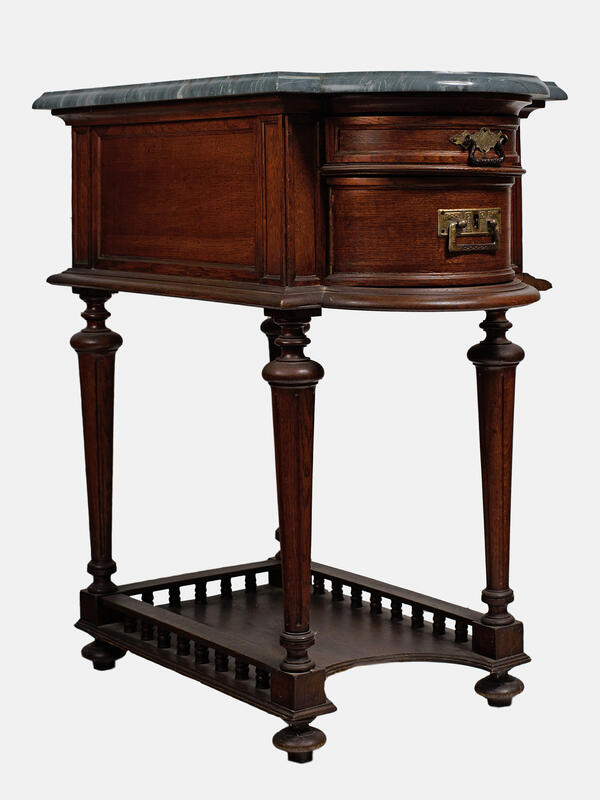The exhibition features a samovar table with a rectangular gray marble top, rounded from one side, with two drawers under the tabletop. On the table, there is a tray with a ceramic placemat and an antique metal coffee pot, as well as a samovar.
The writer’s family had their own tea-drinking tradition: the hot samovar was taken out and placed on the tea table. The writer himself poured tea for the guests, saying, “Make life modest, and you will live to be a hundred years old.” It was his favorite saying, which reflected his own attitude to life. The tea was usually accompanied by pies and snacks.
Sergeyev-Tsensky preferred his tea strong, with sugar, while not caring two straws about any other drinks, including alcohol. During teatime, the writer took breaks from his intensive working process; he could drink tea several times a day, as it made him feel more energetic and helped him clear his mind. Sometimes, Khristina Sergeyeva-Tsenskaya brought tea to the writer’s study.
The drawers of the samovar table contained sweets, candies and bread rolls. It was due to the fact that the writer’s studio was frequently visited by children from an orphanage in Alushta. The Sergeyev-Tsensky couple, who did not have children of their own, were patronizing the orphanage, which was opened in the city after World War II when many children lost their parents. Sergeyev-Tsensky and his wife regularly donated large sums of money and fruit from either their own garden or a state-owned farm to the orphanage.
The management of the orphanage informed Khristina Sergeyeva-Tsenskaya of their needs. She listened to their appeals and brought the necessary things. As evidenced by letters, references and receipts in the museum’s collections, the Sergeyev-Tsensky couple provided a lot of help to the orphanage. They brought clothes and shoes for the wards, opened a sewing workshop in the orphanage and hired a seamstress to teach the girls how to sew. During the times when ready-made clothes were hard to come by, this skill proved to be extremely important. Sergeyev-Tsensky gave valuable gifts to the orphanage graduates. For example, he brought watches for the boys. Back then, a watch was an indicator of high social status and was a luxury for any young man.


